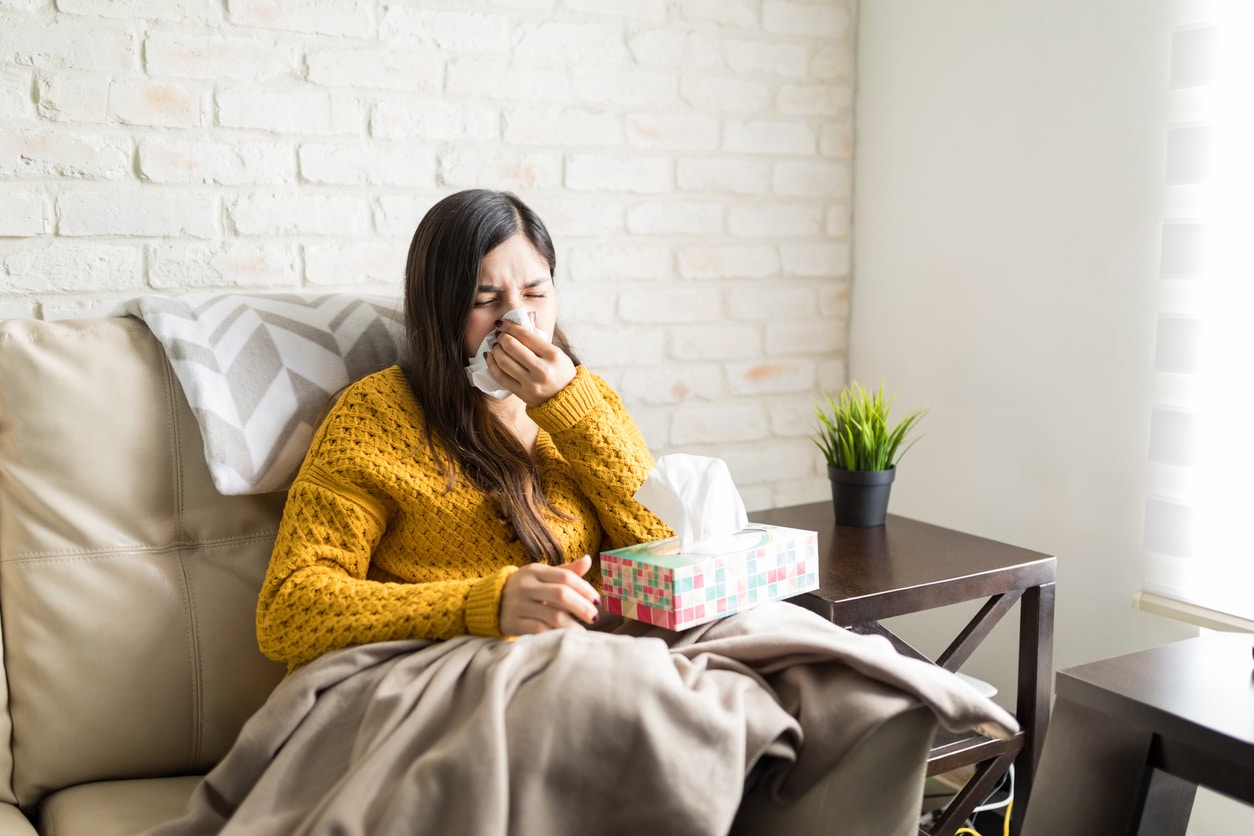Sinus infections, an inflammation of the tissues lining your sinuses, may seem mild initially, but they can significantly disrupt your life. The congestion, facial pressure and headaches can make even the simplest tasks exhausting. While you can’t completely prevent sinus infections, understanding the risk factors for developing them can help minimize the risk of future infections.
Let’s take a look at five risk factors for developing sinus infections and how you can manage them.
1. Smoking and Exposure to Secondhand Smoke

Cigarette smoke irritates the sinuses and damages the tiny hairs (cilia) that help move mucus through the nasal passages. Healthy cilia defend your sinuses against infection and irritants, minimizing your risk for inflammation. When these hairs aren’t working correctly, inflammation arises, and mucus builds up, increasing the risk of sinus infection.
Quit smoking and avoid secondhand smoke as much as possible to lower your risk of irritation.
2. Allergies
Allergic reactions cause inflammation in the nasal passages, making it easier for bacteria or viruses to get trapped and cause an infection. Sinus infections are especially likely during hay fever season when the pollen count in Frisco is high.
Take allergy medication and avoid known allergens, especially during hay fever season, to minimize your risk of sinus inflammation.
3. Frequent Respiratory Infections
Colds, flu and other respiratory illnesses can inflame the sinuses, leading to infection. If you’re constantly catching colds, your risk of developing a sinus infection increases.
Practice good hand-washing technique and avoid contact with sick people to minimize your chance of infection.
4. Nasal Structural Issues
A deviated septum or nasal polyps can block normal drainage, leading to recurring sinus infections. In severe cases, your sinus specialist may recommend procedures like septoplasty, Balloon Sinuplasty or functional endoscopic sinus surgery to open up the sinuses and improve airflow.
5. Air Pollution and Irritants
Dust, strong odors, pollution and chemicals can irritate the sinuses, increasing the likelihood of infection. Dry air from heating systems can also dry out the nasal passages, making them more vulnerable.
To help minimize your exposure to irritants, clean your home regularly, switch to green cleaning products (avoiding bleach or ammonia-based options), run a humidifier in your home to keep humidity between 30% and 50% and change your air filters regularly.
Make an Appointment With One of Our Sinus Specialists
Ignoring sinus issues can lead to chronic infections, breathing difficulties, poor sleep and more. Whether it’s allergies, smoking or structural problems, identifying risk factors is the first step toward better sinus health. Contact Collin County ENT today for a consultation with one of our sinus specialists.